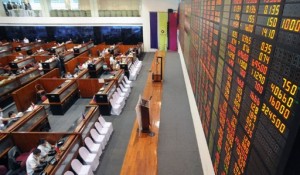The central bank unveiled its strongest policy move against surging prices in the local economy, raising its key interest rate by 50 basis points (or half a percentage point) amid fears that weaker-than-expected growth in the second quarter would force it to temper its response.
In announcing its biggest rate increase in recent years, Bangko Sentral ng Pilipinas Governor Nestor Espenilla Jr. said new evidence had emerged that inflation pressures would remain elevated going into next year, thus requiring a more forceful response from monetary planners.
The increase brings BSP’s overnight borrowing rate—on which all financial institutions base their lending rates—to 4 percent, following two 25-basis point increases in May and June.
“The Monetary Board noted that latest baseline forecasts have shifted higher over the policy horizon, indicating some risk of inflation exceeding the target in 2019,” the central bank chief said.
The country’s inflation rate stood at 5.7 percent as of July, the highest in at least five years, prompted by high international crude oil prices and local rice supply bottlenecks, among others, all accentuated by the effects of the Duterte administration’s tax reforms implemented this year.
Espenilla said that “upside risks” continued to dominate the inflation outlook “as the sustained increase in core inflation expectations remain elevated, even as the central bank’s economist expects that the consumer price index will stay within its target next year of 3 percent, plus or minus 1 percentage point. For these reasons, the Monetary Board deemed stronger monetary action to be necessary to rein in inflation expectations and prevent sustained supply-side pressures from driving further second-round effects, even as the previous monetary policy responses continue to work their way through the economy.”
Espenilla explained that the series of rate increases implemented by the BSP this year would help reduce further the risks to inflation, including those caused by rising interest rates in advanced economies that have been causing the peso to depreciate as foreign investors repatriate their assets.
More importantly, the BSP chief expressed belief that the Philippine economy—which grew by a weaker-than-expected 6 percent in the second quarter—could absorb the growth-dampening effects of another interest rate hike.
Espenilla also urged other government agencies to do their part in helping mitigate price increases that have been accelerating steadily since the start of the year. In particular, he said “nonmonetary measures” like the proposed tariffication of rice imports would help increase local supply and drive down prices for a key commodity that make up almost a tenth of the weight of the inflation basket.
“The BSP reiterates its strong commitment and readiness to take all necessary policy actions to address the threat of high inflation and deliver on its primary mandate of price stability,” he said.


